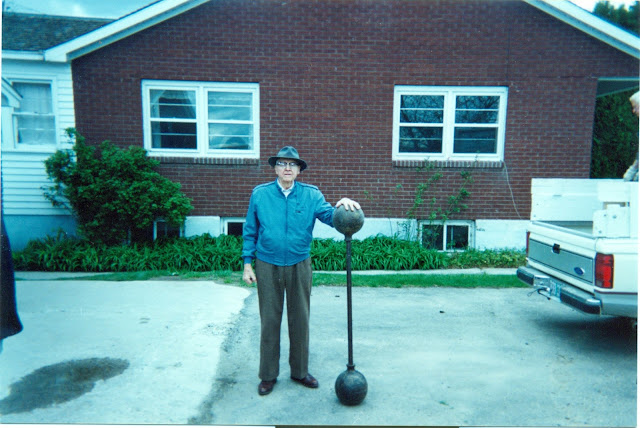This story is about the profound influence an individual has
had on my life who I have never met - well at least we never met in this life. Let me start by recounting my first experience
when attending an Elders Quorum meeting.
For those who are not LDS, young men who turn 18 and are considered
worthy are ordained an Elder and join a quorum of adult male priesthood holders
with whom they meet every Sunday. I
remember being rather intimidated by meeting with approximately 30 adult men
who were all older and more experienced than me. The lesson that first Sunday was on
controlling our speech, with an emphasis on refraining from swearing.
Near the end of the lesson, Ed Sharp (a man about 45 years
of age) raised his hand and said he had an experience that he wanted to
share. He said a few years before while
working in the early morning hours of a graveyard shift at the sugar beet
factory in Nyssa, Oregon, the large conveyor belt broke that carried all the
sliced beets into the factory. It took
quite a while to stop the beet cutting operation and so several tons of sliced
beets spilled out all over the front part of the sugar factory creating a huge
mess and effectively shut down the factory.
He watched as the foremen and mechanics arrived and said each of them began
swearing and uttering profanities because of all the trouble this would
cause. He then said Lorin Goates, the
Assistant Superintendent who was in charge of this shift and managing the approximately
60 men who were working, came on the scene.
Ed said everyone was quiet while my father surveyed the situation, and then
my father said, "Well, I'll be darn!"
Ed went on to say that my father immediately began giving orders as to what
various individuals were to do to clean up the mess, repair the equipment, and
get the factory back into operation.
 |
| A cursive weapon when combined with manure |
I could tell that Ed Sharp and the others in the Elder's
Quorum were impressed by that story and the fact that my father, the person
with the responsibility to make that shift productive, didn't resort to swearing
in the midst of what was viewed as a horrible problem. My father's reaction, however, was no
surprise to me because I knew he didn't swear.
I had spent many a cold morning with my father milking cows at 6 a.m. in
the winter, when the temperature was below freezing and a cow would step on
your foot, kick you, or swish you with their tail that was covered in manure. Under those circumstances, when no one of any
importance is around and a cow's tail just covered your face with manure, there
is an excellent opportunity to express oneself with language that would not be
appropriate for church. I would like to
say that never happened, but in fact I have seen it all happen to my father
while milking cows. I mean I have seen
it all happen except for the cussing and blaspheming, because I never heard my
father swear - not once.
 |
| Clara Evan Goates |
It would be another 20 years before I learned why my father
never swore. It was while driving across
Oregon with my oldest sister Irene to visit our parents decades later that I
recounted the Elder's Quorum story above and commented on never hearing father
swear. She then said, "Well, you
know why don't you?"; and then, because I had no idea, she explained it
was because his mother had made him promise when he was a little boy that he
would not swear or take the Lord's name in vain. Most little boys would not be able to keep
such a promise, but my father could and would keep his promise.
 |
| Clara Evans Goates and children |
While I have incredible respect for my father, it is my
widowed grandmother, Clara Evans Goates, who amazes me.
This woman would die in the Spanish Influenza epidemic of 1920,
twenty-seven and a half years before I was even born, and yet her influence on
me is profound. It starts with having a
father who didn't swear, but he also didn't drink or smoke (another promise he
made to his mother) and was morally clean (also something he promised
her).
My father didn't lose his temper, because it seems that if
you can control your language, you can also control you anger. My father was physically very strong, but I
was not afraid of him because his temper never got the better of him. I have seen fathers who when they felt
challenged, fought with their sons; it is ugly and no one is the winner, no
matter who comes out on top. But that
never happened to me and I credit both my father and my grandmother. I have a deep debt of gratitude for Clara
Evans Goates for how deeply she has blessed my life; and all because she made a
little boy make promises to her.





